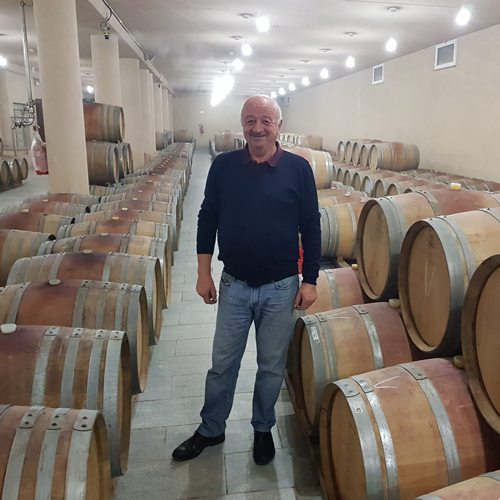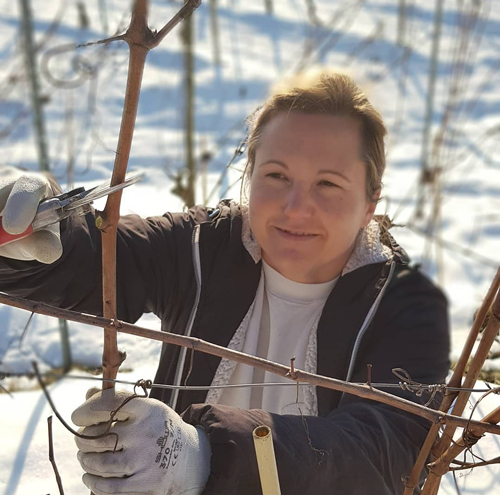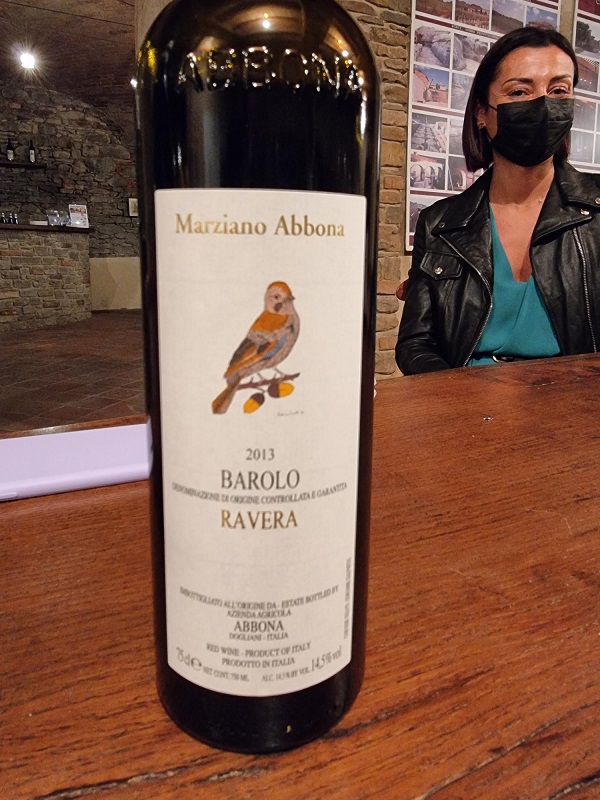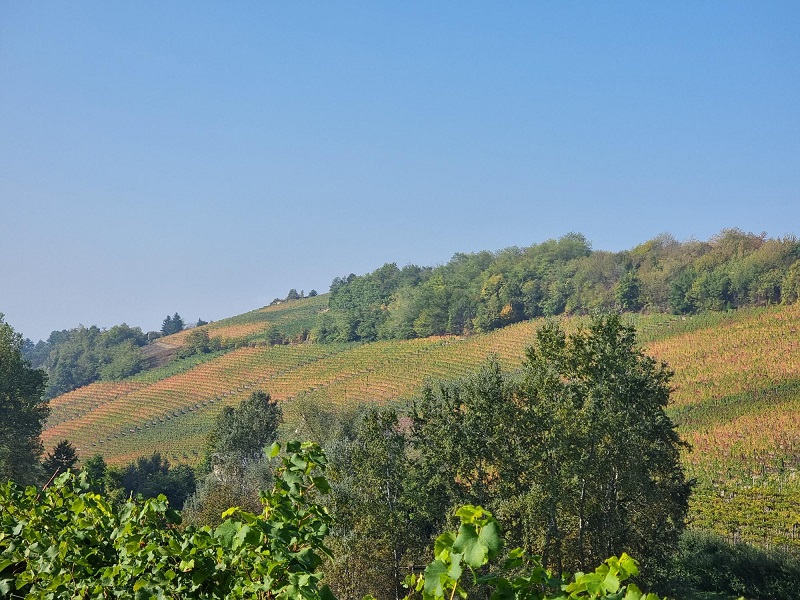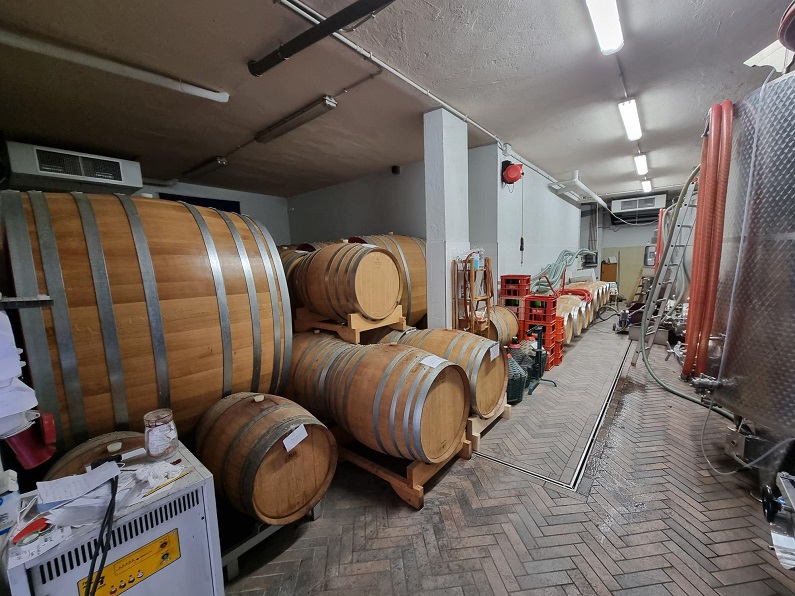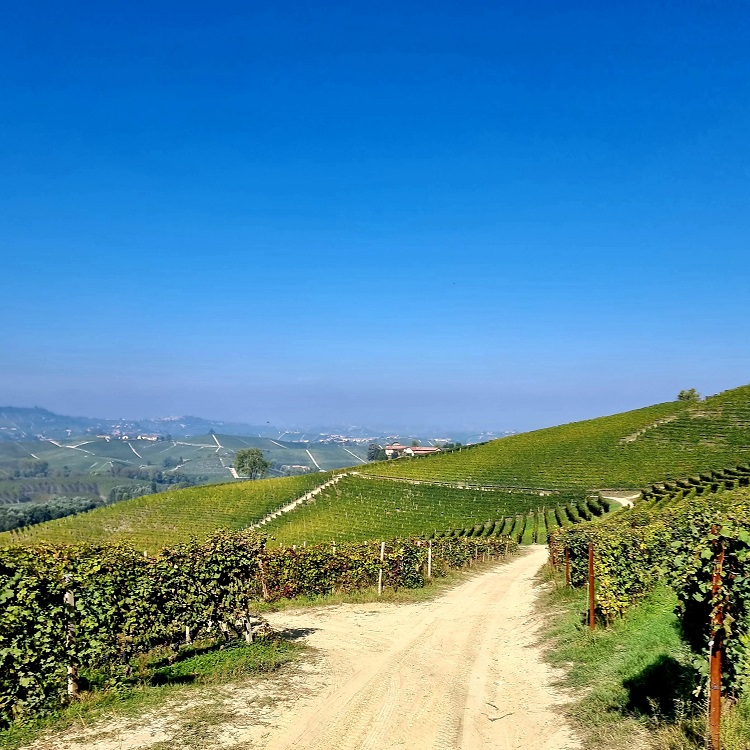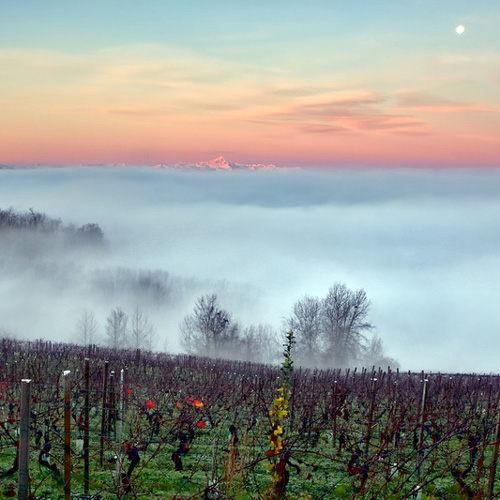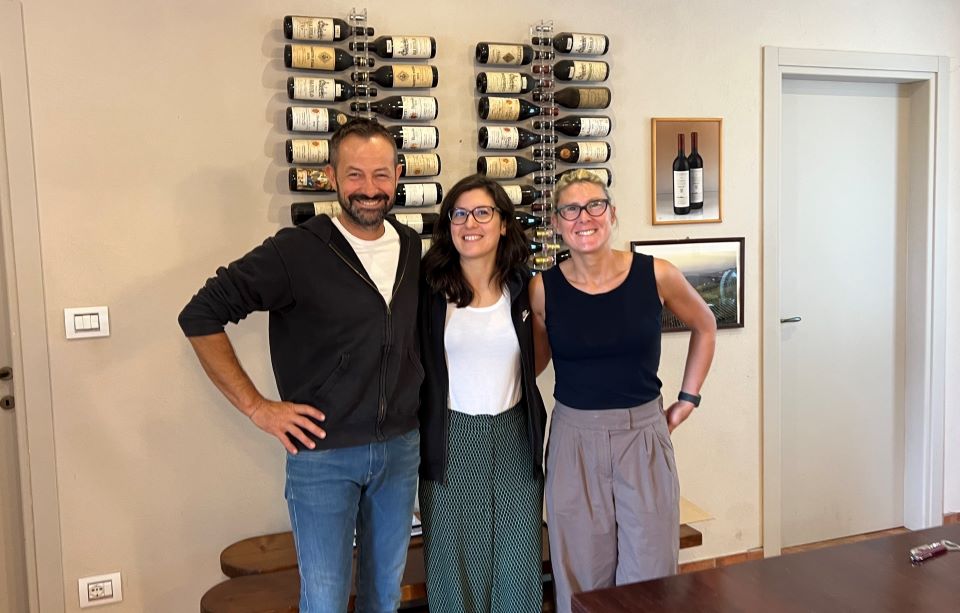Barbera, Dolcetto & Langhe Nebbiolo
For earlier drinking and yet still giving a great understanding of the different zones and different domaines, do not overlook the super value Langhe Nebbiolo releases from many of our growers. Largely made in the same way as the ‘Grandi Vini’ but with an eye to earlier drinking, they are more approachable immediately and will give great insight to the growers - and crucially will give great joy to drink.
Nebbiolo is certainly Piedmont’s most in-demand variety. Good examples have an ethereal grandeur – an intensity of flavour and yet a delicate touch. Delicate in colour, but with incredible depth. Often pretty, but always with good structure too, particularly in their youth. It is no surprise that all our growers here are Pinot Noir Fanatics – there is much in common with Burgundy’s finest reds here. Not simply because of the parallels in geography, culture and the history of viticulture here, that we mention above - but also down to the similar experience of drinking Nebbiolo. Good examples are deeply expressive, intricate and thought-provoking in the glass.
However, to understand the full picture of the region we should not ignore the other native grapes that are so popular locally. Although never so noble as the finest Nebbiolo, nor so sought after internationally – Barbera and Dolcetto offer drinkers a fabulous slice of Piedmont. Thankfully they are released at very attractive prices too, for wines from such hallowed ground and with such charm. These two varieties really do help complete the picture here for Red Wines and are a vital part of the jigsaw when trying to understand different growers’ approaches and the different terroirs that keep Piedmont so fascinating.

Andrea Oberto
A small family run winery and vineyard based in La Morra, The Obertos have sixteen hectares of vineyards and produce a brilliant 'village' Barolo from La Morra itself - as well as two other Barolos from different top 'crus' in this sought after village - Rocche dell'Annunziata in La Morra and Albarella in Barolo, just above Cannubi. The wines are beautifully focused and age well, although immensely approachable in their youth as there is a deliciously juicy and generous feel that runs through all the wines.
The winery’s history dates back to 1959, when Andrea's father bought a small-holding and farmhouse in La Morra. At that time farmers could not survive with just one crop, and so he earned a living growing peaches, grapes and raising cows. However, in the family business there was not enough work for everyone and so Andrea, decided to leave the farm and started working for a big company as truck driver. He came back (thankfully!) to La Morra in 1978 when his father died, inheriting the family’s land and taking on the management of the farm.He soon began to focus solely on vine growing. At the beginning the grapes were sold to cooperatives or even to friends and family. Andrea's talents soon became clear, he was a natural with a deft hand and a great palate. The small farm quickly morphed into a wine company with sixteen hectares of their own wines and a brilliant cellar.

2021 DOLCETTO D'ALBA Andrea Oberto
Andrea Oberto has been turning out an incredible array of wines for many years now and this, his 2021 Dolcetto, is just another example of his brilliance. Dolcetto can be seen as a bit of a workhorseAndrea Oberto has been turning out an incredible array of wines for many years now and this, his 2021 Dolcetto, is just another example of his brilliance. Dolcetto can be seen as a bit of a workhorse for many estates, but he manages to conjure something with real joy. This displays so much charm, blueberry, damson and red cherry fruitiness, floral, with hints of violets and then a juicy freshness to lift the whole and keep you going back for more.L&S (Oct 2022)
In Bond

2020 BARBERA D'ALBA Andrea Oberto
Darker fruit on the nose, crushed stone, black cherry, blackberry, hint of cocoa powder. Red berry notes add a fresh feel to the core. Super weight, great concentration of polyphenols. Delicious.Darker fruit on the nose, crushed stone, black cherry, blackberry, hint of cocoa powder. Red berry notes add a fresh feel to the core. Super weight, great concentration of polyphenols. Delicious. Sappy and broad - but sleek and alive too. This is a real charmer.L&S (Oct 2021)
In Bond

2020 LANGHE NEBBIOLO Andrea Oberto
Andrea Oberto's Langhe Nebbiolo is a brilliant window on to the quality of his Barolo wines. Charming as ever from this cellar but with the classic feel and hints of Rose, mint, cocoa, strawberry andAndrea Oberto's Langhe Nebbiolo is a brilliant window on to the quality of his Barolo wines. Charming as ever from this cellar but with the classic feel and hints of Rose, mint, cocoa, strawberry and cherry filling the palate. There is a juicy fresh lift in the mouth too, balancing the ripe and sleek red fruit, strawberry flesh, cherry and mint, sleek and supple finish. L&S (Oct 2021)
In Bond

Barale Fratelli
The Barale family's wine-making history can be traced right back to 1870 when the village of Barolo first started making a name for itself as a hub for fine quality Nebbiolo in the Langhe region. This charming small town now gives its name to the whole region and remains one of the most important of the 11 Barolo 'villages'.
The historic Barale family winery is right in the centre. From the outside it would appear to be just another townhouse - but through the gates you find a gorgeous courtyard and a labyrinth of cellars that lead on to the winery itself. On our last visit we found the family mid-harvest and this ancient workspace was in full swing and working ideally - so why would you move? It was a joy to watch the seamless transition of the grapes from the small picking-baskets on the back of the tractor into the fermentation tanks.
They have moved with the times in the cellar - but only to help them preserve the charm and freshness of their great terroirs. Luigi resisted the fashions of the 1990s here, shunning the heavier extraction and hunt for more power - and never jumping to using lots of new oak. His unstinting allegiance to traditional winemaking serves the family well now. These are elegant, poised and sometimes hauntingly good wines. Tradition is at the heart of how they operate here - but they are not luddites! Embracing modern practices when they can help achieve their goals, rather than change the results.
Francesco Barale, great-grandfather of the current owner, was among the pioneers in the production of Barolo. Today Luigi and his daughters Eleonora and Gloria carry on the old family tradition.

Bricco Maiolica
Beppe Accomo is a passionate and ambitious viticulturist making wines of excellent quality on his 20 hectare estate, in a beautiful valley in this prime spot at the heart of Diano D'Alba. In 1928, his grandfather who worked the land as a sharecropper, managed to buy 5 HA of this perfect terroir - and the family has proudly continued that tradition and clung on to this prized terroir ever since, adding parcels of vines as they can.
Beppe makes gloriously uncomplicated, yet sophisticated and engaging wines that do not require years of bottle age. They are wines you just want to drink! His Barbera is from old vines which produce tiny bunches of grapes making a wine with concentrated aromas of black cherries, deep colour, and fine rich flavour with hints of chocolate on the finish. Equally successful is the deep purple, ripe morello cherry fruit-packed Dolcetto - one of the best from Diano d'Alba by a long stretch. His Nebbiolo is also chock full of raspberry and bilberry fruit with tremendous structure and length making it one of the best simple expressions of Nebbiolo which can be drunk on a regular basis and when relatively young.

Cigliuti
Sisters Claudia and Silvia Cigliuti took over the running of this vineyard from their father Renato. He was the first member of the family to begin bottling his own wine, back in 1964, roughly the same time as other pioneers in the region like Giacosa, but the family can trace its roots on this land back to the late eighteenth century.Most of the vineyard and the winery is on the Serraboella hill, looking over Neive from the east, and it is the Barbaresco Serraboella which is the flagship wine of the estate. This hill, composed of calcareous marl and tufa soils, gives classic wines which combine the textural finesse of clay and the length and longevity of wines from limestone. The vineyards are tended by the family, by hand, with low yields to ensure full ripeness every year.

Marziano Abbona
The Abbona vineyards were first established in the early part of the 20th Century by Marziano and Celso Abbona (father and son) just outside the town of Dolgliani. Famed for it's Dolcetto, it was Celso who first planted the Bricco Doriolo vineyard in the 1950's and it is from here that the estate's flagship wine 'Papá Celso' derives. Rightly heralded as one of Piedmont's greatest Dolcettos, it is wine of elegance, power and harmony, a wine that can age gracefully for many years.
In the mid-sixties the estate passed to Celso's sons Marziano and Enrico and they worked tirelessly to further establish the reputation of their local Dolcetto and bottled the first wines under the family name. In the early 1980's they added holdings in the prestigious Cru's of Barolo Ravera (Novello) and Bricco Barone and Rinaldi (Monforte d'Alba).
Following the untimely death of Enrico in 1999, Marziano's daughter Mara joined the family business and the estate continued it's acquisitions of Barolo vineyards with plots in Pressenda (Monforte d'Alba) and Cerviano (Novello). It was also a time when Marziano was experimenting with a new white wine, Cinerino, made from Viognier, as he had enjoyed great Condrieu and wanted to see if they could replicate the wines in the hills of Dolgliani. Today it has become something of celebrity and is found in restaurants throughout Piedmont. These is the 'go to' White for our winemaking friends in the area.

Roccheviberti
Claudio Viberti is the 3rd generation to be at the helm of this small but very special estate in Castiglione Falletto - one of the great cru of Barolo. His grandfather bought the vines, just 4.5 HA in 1946, but it was not until 2002 when the young Claudio took the reins that they bottled their own wines in earnest. His father and grandfather largely sold off their juice or their grapes to other local estates. Claudio is proud that since his tenure started they have bottled everything themselves and sold the wines under their own label.
The estate's 'village' Barolo is made from a patchwork of plots of very old vines dotted throughout the village. It is the most perfect example of this commune's famed elegance. Pitch-perfect Nebbiolo.
Claudio's two 'cru' wines are both true wonders and take things to another level. Yet, fascinatingly they could not be more different. The village sits atop a tall, very steep ridge and Claudio has vineyards on each side of the ridgeline. The mesmerising Rocche Castiglione is on sand with some limestone and tuffo in the soil's make up. The vineyard faces south-east so gets the early sun and constant fresh wind that keeps it healthy and disease free. The wine is incredibly fragrant, with gentle bright fruit and a soft touch. Classic for this village - but so remarkable it stops you in its tracks, this is remarkably fine Barolo.
Claudio's other vines are in the hugely famous Bricco Boschis vineyard. For decades the Cavalotto family have been the only producers of Barolo Bricco Boschis, leading many to feel it was a monopole. This is not the case as several growers have Dolcetto vines here, Claudio regrafted some of his old vines to Nebbiolo and from 2014 has made his own Barolo Bricco Boschis. You can quickly see why this vineyard is one of Piedmont's most prized. Facing West it benefits from the warm afternoon and evening sun and the soil here is heavy with clay. The results are astonishingly good, powerful and broad in contrast to Claudio's Rocche Castiglione. Rich and structured, this is a wine that will require patience - but is an absolute gem. Rightfully an historic name - we are delighted to be able to offer this very rare gem.

Sottimano
Andrea Sottimano and his two sisters, Elena and Claudia are now firmly at the helm here and this exquisite estate continues to make finer and finer wines - some of the very best in Barbaresco. This sixteen hectare estate is based in the Cotta' region of Barbaresco, and the Sottimano family have over the years bought outstanding vineyards in the 'crus' of Currà, Cottà, Fausoni and Pajore. In the vineyard they work organically and limit yields to increase quality. The winemaking is as low-intervention as possible, using only natural yeasts and then the wines are bottled without filtering or fining. All of these 'crus' are given exactly the same élevage, so as to allow the individual 'terroirs' to express their character. Terroir expression is the target here - and these amazing wines are as much an education as a joy to drink.There are five different crus - each with very specific attributes where they produce their distinctly different Barbarescos. The latest edition is Basarin, with a mixture of clay, limestone and sand. It sits at about four hundred metres above sea level. It makes for wines that are always very elegant, refined, tannins are silky and softer, Basarin tends to be the most approachable of all the wines.
Fausoni, on sand and clay, makes wines that are always very elegant - mint, liquorice and little red fruits. This is in the historical part of Neive.
Cottà, on limestone with clay is one of the oldest cru in Barbaresco, the family's vines are very old here (fifty years and older) and the colour of the wine is just a little bit lighter than other vineyards (because of the clay), but they have a very distinctive nose of dark fruits and mint, a great elegance and mineral tannins.
Pajore is almost entirely on limestone with just a little clay. This is the highest vineyard of all, at 420 metres above sea level. The vines are very old, and it is always the most mineral and elegant of the four Barbarescos. Limestone brings into the wine a great purity of fruit, a distinctive aroma of spices and tobacco (cigar box) and a very unusual quality of tannins, firm but very mineral.
